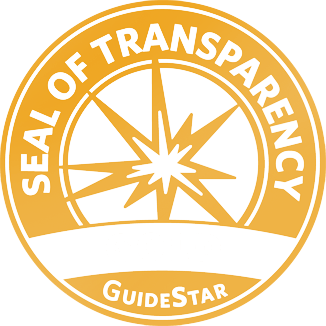ACTT Naturally’s equine assisted learning programs for veterans, their families, and first responders, victims of domestic and other forms of violence and loss, are designed specifically with the off-track thoroughbred as a participant.
Set in a healing environment with our horses supporting our mission of helping people work towards living a better life.
Benefits of Equine Programs for People Who Have Suffered Abuse or Trauma
Equine programs, often known as equine-assisted therapy or equine-assisted learning, involve interactions between humans and horses to promote emotional growth and healing. These programs have been shown to offer numerous benefits, especially for individuals who have endured abuse or trauma.
Emotional Healing
- Non-Judgmental Companionship: Horses provide non-judgmental companionship, which can be comforting for individuals who have experienced trauma. They offer a safe space where people can express their emotions freely without fear of criticism or rejection.
- Building Trust: Trauma often leads to trust issues, and working with horses can help individuals learn to trust again. Horses are sensitive and respond to human emotions, requiring individuals to be calm and trustworthy, which can be a therapeutic process.
Physical and Psychological Benefits
- Stress Reduction: The presence of horses and the act of riding or grooming them can significantly reduce stress levels. The rhythmic movement of riding can be soothing, promoting relaxation and reducing anxiety.
- Improved Self-Esteem and Confidence: Successfully interacting with and caring for a horse can boost an individual's confidence and self-esteem. It provides a sense of accomplishment and empowerment.
Social Skills and Communication
- Enhanced Communication Skills: Horses communicate primarily through body language, encouraging individuals to become more aware of non-verbal cues. This can improve overall communication skills, which is beneficial for those who may struggle to express themselves verbally.
- Social Interaction: Equine programs often involve group activities, promoting social interaction and helping individuals build relationships with peers who understand their experiences.
Mindfulness and Present Moment Awareness
- Living in the Moment: Horses require individuals to be present and attentive, fostering mindfulness. This focus on the present can help participants detach from past traumas and reduce symptoms of depression and anxiety.
- Emotional Regulation: By interacting with horses, individuals are encouraged to manage their emotions effectively. Horses can mirror human emotions, prompting participants to regulate their feelings to maintain a calm and positive interaction.
Therapeutic Environment
- Nature’s Healing Power: Being in a natural environment with horses can have additional therapeutic benefits. Nature itself is a calming and healing backdrop that enhances the overall therapeutic experience.
- Structured Routine: The routine of caring for a horse can provide stability and structure, which is often missing in the lives of those who have experienced trauma.
In summary, equine programs offer a unique and effective therapeutic approach for individuals who have experienced abuse or trauma. By fostering emotional healing, enhancing social skills, and promoting mindfulness, these programs contribute significantly to the recovery and well-being of participants.
Benefits of Equine Programs for Veterans
Equine programs have become increasingly popular among veterans due to their profound therapeutic benefits. These programs, which involve interaction with horses, offer a unique and effective form of therapy that supports veterans in various aspects of their lives.
Emotional Healing and PTSD
One of the primary reasons veterans are encouraged to participate in equine programs is the emotional healing they provide. Many veterans suffer from post-traumatic stress disorder (PTSD) and other psychological challenges stemming from their military service. Horses are highly intuitive animals that can mirror human emotions, offering veterans a safe space to process their feelings without judgment. The non-verbal communication and bonding with horses can help veterans manage anxiety, reduce stress, and improve emotional regulation.
Building Trust and Relationships
For many veterans, reintegrating into civilian life can be challenging, especially when it involves building new relationships and trusting others. Working with horses requires patience, understanding, and trust—qualities that are essential in forming healthy human relationships. Through equine programs, veterans learn to develop these skills in a controlled setting, which can then be translated into their interactions with family, friends, and colleagues.
Enhancing Communication Skills
Effective communication is crucial in managing horses, as it involves clear cues and consistent behavior. Veterans participating in equine programs often find their communication skills improve, both verbally and non-verbally. This enhancement can be particularly beneficial in their personal and professional lives, helping them express themselves more clearly and confidently.
Providing a Sense of Purpose
Many veterans find that equine programs provide them with a renewed sense of purpose. Caring for a horse, learning new skills, and witnessing personal growth can be incredibly fulfilling. This sense of accomplishment can lead to increased self-esteem and motivation, helping veterans to set and achieve new goals in their post-military lives.
In summary, equine programs offer a holistic approach to healing and growth for veterans, addressing emotional, physical, and social needs. Through their interaction with horses, veterans can find a path to recovery and well-being, making these programs a valuable resource for those who have served their country.



